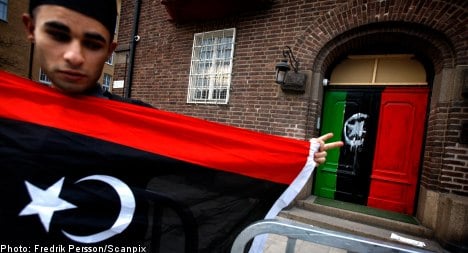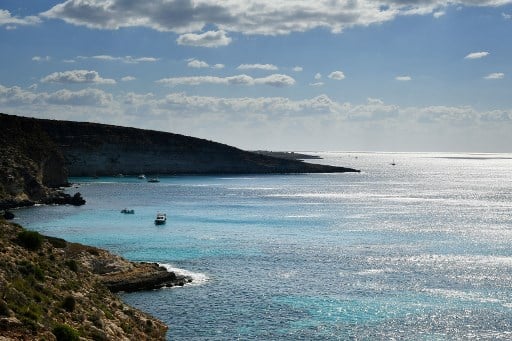At 4.30am an additional three men were arrested for trespassing at the embassy, lifting the total to six detained individuals.
“They have resided illegally in the area and will likely be released after questioning. There are no charges against them. This morning it has been pretty quiet at the embassy,” said John Hall, station officer at Norrmalm police told the TT news agency.
According to police, the apprehended were probably Swedish nationals.
The police have set up barricades around the embassy in preparation for anticipated protests during the weekend.
The demonstrators demanded that Sweden close the Libyan embassy and reject the regime of Muammar Qaddafi’s newly appointed ambassador.
After consulting with the foreign ministry, police entered the premises.
“Two of them surrendered shortly after 1am after hoisting up their own flag,” Sven-Erik Olsson at Stockholm police told TT.
According to police, a flag burned inside the embassy, causing some damage and the Embassy’s door has been painted in the Libyan rebel flag colours.
A preliminary investigation of aggravated unlawful entry has been initiated.
On April 18th demonstrators protested outside the embassy against the removal of the independence era rebel flag that had been previously flown from the building.
The rebel flag was raised February 22th as then-ambassador Abdelmaged Ali Buzrigh changed sides in support of the rebel cause, distancing himself from Qaddafi.
Protestors connected the flag’s removal to be an indication that the newly installed Embassy head is a supporter of Qaddafi.
The new ambassador Salah Umi has been accused by Buzrigh, amoung others, of belonging to Qaddafi’s notorious external security service.
Since March 10th, the EU no longer recognizes the Qaddafi regime as representative of the Libyan people.
Diplomatic relations will not exist anymore and the embassy in Stockholm thus has no function, said the Foreign Ministry.



 Please whitelist us to continue reading.
Please whitelist us to continue reading.
Member comments